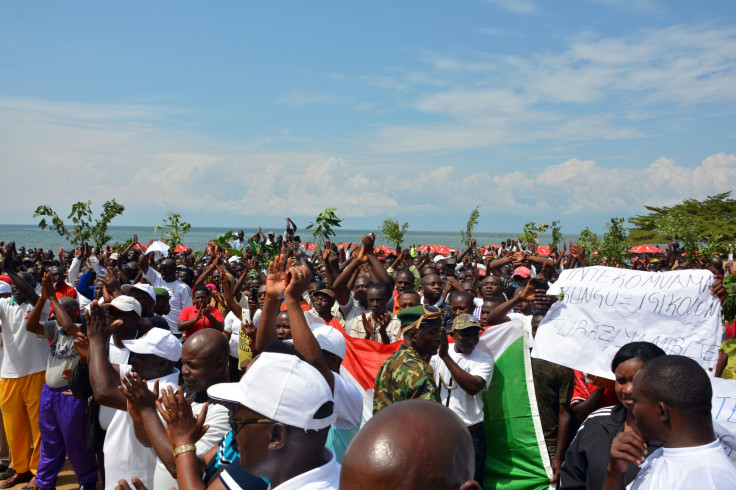Burundi Rebel Group Says Behind Killing Of Senior Army Officer

A Burundi rebel group led by a former officer who launched an abortive coup claimed responsibility Saturday for the killing of an army colonel this week in the capital, the group said on a Twitter account.
The claim by the Republican Forces of Burundi (FOREBU), which wants to topple the government of President Pierre Nkurunziza, will add to international worries that Burundi's yearlong political crisis is sliding toward a full-blown conflict. More than 400 people have died so far.
Lt. Col. Darius Ikurakure was shot dead Tuesday by an assassin dressed in a military uniform, the army said. Soldiers gave similar accounts and also said he was killed inside the ministry compound in the capital of Bujumbura.
"We promised the people to defend them. We are at work. We will not stop until the mission is accomplished," FOREBU announced on a Twitter account. Journalists confirmed the account had been used for other FOREBU statements.
“Those who took that oath are behind the operation against Lt. Col. D. Ikurakure. You'll see them again soon. For it is just the beginning,” it said.
It was not possible to get independent comment from members of FOREBU, who has said it is led by Godefroid Niyombare, a former intelligence chief and senior army officer behind an attempted coup in May.
The government said this week it had retrieved the weapon used in the assassination and was pursuing the killer.
Burundi's crisis was sparked by Nkurunziza's bid for a third term in April last year, a move the opposition said violated the constitution and the terms of a peace deal that ended the nation's 1993-2005 civil war that left 300,000 dead.
The government cited a court ruling saying the president could run again. Nkurunziza won a disputed election in July.
Western states have cut back aid to the poor country in a bid to push the government into a serious dialogue with opponents, but regionally sponsored talks have stalled.
More than 220,000 have fled to neighboring countries, including Rwanda, which suffered from a genocide in 1994. Like Burundi, Rwanda has an ethnic Hutu majority and Tutsi minority.
© Copyright Thomson Reuters 2024. All rights reserved.





















